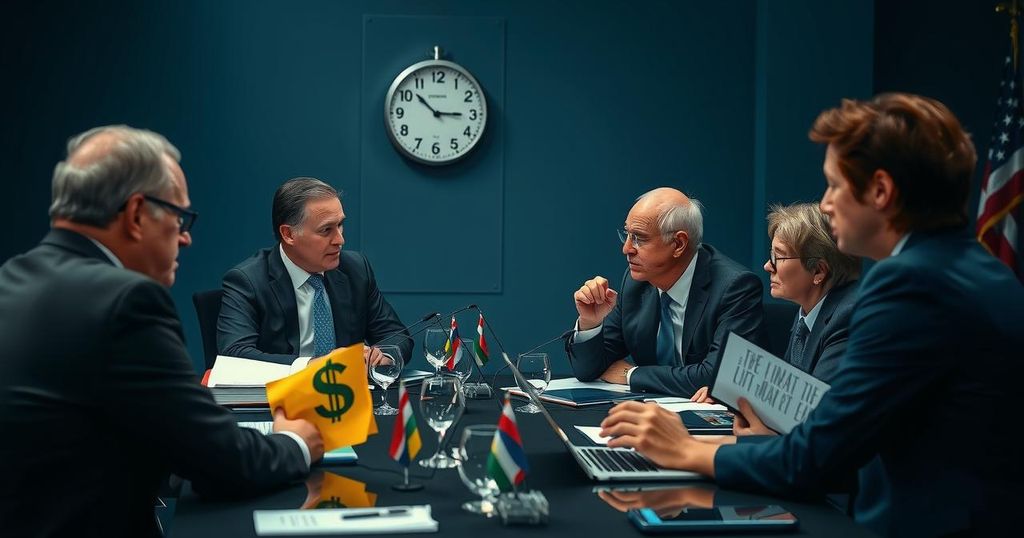Pressure is mounting on wealthy nations at COP29 to commit nearly $1 trillion annually for climate assistance to developing countries, which are among the most affected by climate crisis yet contribute least to its causes. With ongoing negotiations stalled, developing nations seek enhanced support and broader financial accountability, particularly from emerging economies. The situation remains tense as time is running out to solidify agreements and ensure vital funding for climate resilience.
As international negotiators gather in Azerbaijan for COP29, the urgency intensifies for wealthy nations to commit substantial financial support for developing regions facing climate change challenges. With a target of nearly $1 trillion annually by 2030, these nations are under pressure to fulfill their obligations amid a standstill in discussions. Developing countries, particularly those acutely impacted by climate issues, advocate for enhanced funding to support adaptation and mitigate climate threats, as existing offers remain noticeably inadequate. However, disagreements persist, particularly regarding which countries are classified as developing and the modalities of financial contributions. Experts forecast that funding needs will escalate significantly by 2035 if the glacial pace of negotiations continues. \n\nThe dialogue at COP29 has seen repeated calls from developing nations for industrialized countries to honor previous financial pledges and broaden the financial base to include emerging economies such as China and Saudi Arabia. Negotiations have been stymied by a lack of specificity in commitment amounts, leaving developing nations frustrated. Despite the dire stakes, calls for cooperation and serious negotiation continue, with officials noting that some countries have drawn lines regarding the types of financial solutions they are willing to accept. Without decisive action, hopes for an ambitious climate commitment diminish rapidly.
The backdrop of this discussion is the ongoing global climate crisis that disproportionately affects developing nations, which contribute minimally to greenhouse gas emissions but bear the brunt of climate-related disasters. The COP29 conference aims to facilitate negotiations among participants, primarily focusing on climate financing—essentially the funds required for developing countries to adapt and mitigate climate impacts. A significant aspect of these talks includes defining how much developed nations will contribute to support these efforts, against a backdrop of fluctuating commitments and political constraints. Historical responsibilities tied to pollution also inform the expectations placed on wealthier nations to assist poorer ones.
In conclusion, as COP29 navigates the complex dynamics of climate finance, critical questions about equitable contributions remain unresolved. The need for wealthy countries to enhance their financial commitments to developing regions is critical, with an immediate requirement almost amounting to $1 trillion annually. The negotiations highlight not only the urgency of collaboration but the inherent challenges posed by differing classifications of nations and the nature of financial support required. Without significant and specific commitments, aspirations for meaningful climate action face a bleak outlook.
Original Source: www.france24.com






